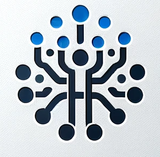Apple invades Datacenters for AI Dominance
The world of tech is abuzz with the news that Apple, the iPhone giant, is venturing into the realm of artificial intelligence (AI) chips specifically designed for data centers.

The world of tech is abuzz with the news that Apple, the iPhone giant, is venturing into the realm of artificial intelligence (AI) chips specifically designed for data centers. This project, shrouded in secrecy until a recent Wall Street Journal report, signals Apple's growing commitment to AI technology and their intent to compete with established players like Nvidia and Microsoft.
Apple's Secret Project: AI Chips for Data Centers
The Wall Street Journal, citing people familiar with the matter, revealed that Apple has been working on a project codenamed "Project ACDC" (Apple Chips in Data Center) for several years. The tongue in cheek acronym is also the name of a world famous band. This project involves developing their own line of AI chips specifically designed for data centers. The report goes on to mention that the timeline for Project ACDC remains unclear, and there's no confirmation on whether the efforts with Taiwan Semiconductor Manufacturing Company (TSMC) on design and production have yielded a functional chip yet.

The Two Sides of AI: Inference vs. Training
There are two main stages involved in working with AI models: training and inference. Training involves feeding massive amounts of data to an AI model, allowing it to learn and develop its functionalities. Imagine training a virtual assistant to recognize different objects in a picture. You'd show the AI assistant countless images with labels, allowing it to learn the characteristics of a dog versus a cat. Inference, on the other hand, utilizes a trained model to analyze new, unseen data and draw conclusions. So, once your AI assistant is trained, it can analyze a new picture and tell you if it sees a dog or a cat in it.
Experts believe, based on the report, that Apple's chip will likely focus on the inference stage of AI, competing with similar offerings from companies like Google. AI inference is a crucial step in deploying AI models for real-world applications, and designing efficient chips for this purpose is a competitive advantage.

Apple Playing Catch-Up in the AI Race?
Analysts have previously pointed out that Apple has fallen behind competitors like Microsoft in terms of AI investment. While Microsoft has poured billions into AI research and infrastructure, Apple's efforts haven't been as prominent. However, CEO Tim Cook, in a February earnings call, acknowledged this perception, stating, "We are investing significantly in [AI technology] and we will have more to say about it as we get through the year." This recent Wall Street Journal report seems to be a part of that "more to say." Cook also emphasized that Apple has "advantages that will differentiate us in this new era," hinting at a unique approach Apple might bring to the AI table.
Continued Investment in AI Signals Future Focus
Despite a recent drop in overall revenue, Apple's latest quarterly earnings call showcased continued investment in AI. Tim Cook reiterated the company's belief in AI's transformative potential, stating, "We believe in the transformative power and promise of AI, and we believe we have advantages that will differentiate us in this new era." This, coupled with their record-breaking $110 billion share buyback, suggests Apple is doubling down on strategic investments for the future, with AI playing a central role. Analysts are now looking forward to Apple's Worldwide Developers Conference slated for June, where they expect the company to make a major AI-related announcement, perhaps shedding more light on Project ACDC and their overall AI strategy.
While the exact details and capabilities of Apple's AI chip remain under wraps, one thing is clear: Apple is determined to be a player in the ever-growing field of artificial intelligence. Whether Project ACDC will be a game-changer or simply another competitor in the market remains to be seen, but one thing is for sure: the battle for AI supremacy in the tech world is heating up.
Counterpoint
But is this a revolution in AI, or a carefully rehearsed cover of a classic rock anthem? Let's analyze the potential issues with Apple's approach and explore how other tech giants are approaching the challenge of AI.
Centralized Inference and the Privacy Peril
While Apple emphasizes efficiency with their data center-focused AI chips, this very centralization raises privacy concerns. Training and running AI models on massive datasets in data centers concentrates immense power in the hands of a single entity – Apple. This raises questions about who controls access to this data, and how potential biases within the data sets might be amplified.

A Black Box in Cupertino? Transparency Concerns
AI models are often criticized for being "black boxes," where the inner workings and decision-making processes are opaque. Centralizing inference in data centers further obfuscates this process. Without clear visibility into how Apple's AI models reach conclusions, it will be difficult to identify and address potential biases or errors.
Who Watches the Watchman? Regulatory Concerns
With the increasing use of AI for critical tasks like facial recognition and loan approvals, robust regulatory frameworks are essential. Centralized data center-based AI systems make regulatory oversight more complex. Distributing the processing power of AI models across devices, a concept explored by Google and others, could potentially ease some of these regulatory hurdles.
Apple's AI Ambitions: Behind the Curve?
While Apple's Project ACDC signifies their entry into the data center AI chip race, it's important to remember that they're playing catch-up. Google, Meta (formerly Facebook), Nvidia, and Microsoft have all been actively developing AI technologies for years. These players boast not only custom chips but also established research arms and open-source software initiatives aimed at fostering responsible AI development.
The Competition Heats Up: Alternative Approaches to AI
- Google's TPU (Tensor Processing Unit): Google's custom-designed TPU chips are specifically designed for machine learning tasks, offering a strong competitor to Apple's ACDC. Google also emphasizes decentralized AI through its TensorFlow framework, which allows for AI model training on various devices.
- Meta's AI Research: Meta (formerly Facebook) has made significant contributions to AI research, particularly in the field of computer vision. Their research efforts are often open-sourced, encouraging collaboration and transparency within the AI community.
- Nvidia's Dominance in Graphics Processing Units (GPUs): While not a dedicated AI chip, Nvidia's GPUs have become the workhorse for training complex AI models due to their parallel processing capabilities. Nvidia actively partners with other companies to democratize access to AI computing power.
- Microsoft's Azure Cloud AI Services: Microsoft offers a comprehensive suite of AI services through its Azure cloud platform. These services allow developers to leverage Microsoft's pre-built AI models and infrastructure, accelerating innovation and reducing reliance on centralized data centers.
The Road Ahead: Responsible AI Development
The development and deployment of AI technology requires careful consideration of ethical and privacy implications. Apple's data center-centric approach to AI raises concerns about transparency, bias, and regulatory oversight. While Apple's entry into the AI chip space is a noteworthy development, a more decentralized and collaborative approach, as explored by Google, Meta, Nvidia, and Microsoft, might be a more responsible path forward for ensuring ethical and trustworthy AI advancements.
Public Watchdogs Scrutinizing AI
The potential negative impacts of centralized AI systems are on the radar of public watchdogs on both sides of the Atlantic. Here are some key organizations working to protect civil liberties in the age of AI:
US:
- Electronic Frontier Foundation (EFF): A leading advocate for digital privacy rights, the EFF is actively involved in discussions about responsible AI development and potential legal frameworks.
- Algorithmic Justice League: This advocacy group focuses on the impact of AI on marginalized communities, raising awareness about algorithmic bias and discrimination.
- Center for Democracy & Technology (CDT): The CDT works to ensure that technology serves the public interest, and they closely examine the implications of AI for democracy and civil liberties.
UK:
- Open Rights Group: This organization campaigns for a free and open internet, and is actively involved in discussions about the ethical development and use of AI.
- Ada Lovelace Institute: This research institute works on ethical questions surrounding AI, exploring topics like algorithmic bias and the future of work.
- The Alan Turing Institute: Named after the pioneering computer scientist, this institute conducts research on all aspects of artificial intelligence, with a focus on its social impact.




